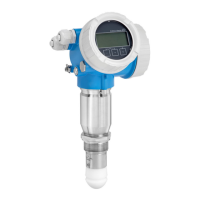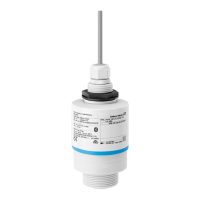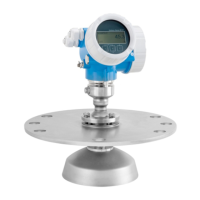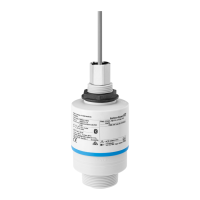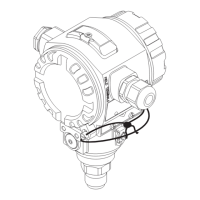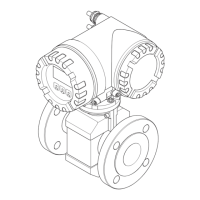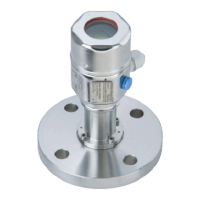Design Micropilot FMR62
10 Endress+Hauser
NOTICE
In an alarm condition
‣
Ensure that the equipment under control achieves or maintains a safe state.
3.3.2 Redundant configuration of multiple sensors
This section provides additional information regarding the use of homogeneously
redundant sensors e.g. in 1oo2 or 2oo3 architectures.
The common cause factors ß and ß
D
indicated in the table below are minimum values for
the device. These must be used when designing the sensor subsystem.
Minimum value ß with homogeneous redundant use 5 %
Minimum value ß
D
with homogeneous redundant use 2 %
The device meets the requirements for SIL 3 in homogeneously redundant applications.
3.4 Basic conditions for use in safety-related applications
The measuring system must be used correctly for the specific application, taking into
account the medium properties and ambient conditions. Carefully follow instructions
pertaining to critical process situations and installation conditions from the Operating
Instructions. The application-specific limits must be observed. The specifications in the
Operating Instructions and the Technical Information must not be exceeded.
3.4.1 Safety-related failures according to IEC / EN 61508
A0034924
A HI alarm ≥ 21 mA
B SIL error range ±2%
C LO alarm ≤ 3.6 mA
No device error
• No failure
• Implications for the safety-related output signal:
None (1) and measuring uncertainty is within the specification ( TI, BA, etc.)
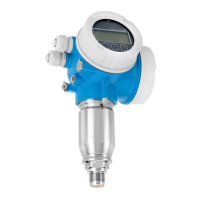
